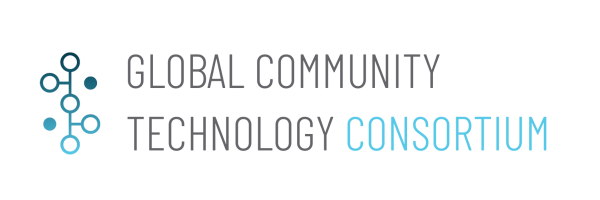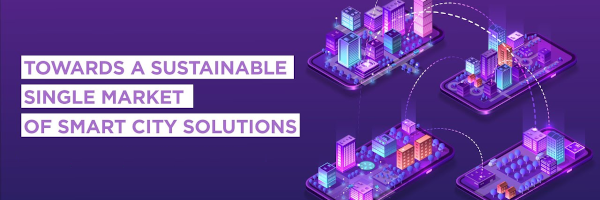Global Digital Single Market for Smart Cities FIWARE
| Global Digital Single Market for Smart Cities FIWARE | |
|---|---|

| |
 Digital Single Market | |
| Team Organizations | FIWARE ecosystem |
| Team Leaders | Juanjo Hierro |
| Participating Municipalities | Genoa Italy |
| Status | Launched |
| Document | None |
Description
The project will demonstrate the potential impact of creating a digital single market for smart cities based on the adoption of a minimum common set of de-facto platform standards enabling solutions to interoperate within, and be replicable across, multiple cities.
Challenges
Solutions
Multiple solutions will be demonstrated as part of this project (GCTC Action Cluster), each solving a particular challenge of a given City. What is common to all of them is the adoption of platform standards allowing them to interoperate within and be portable across cities that have adopted smart city platforms “Powered by FIWARE” adhering to those standards.
Major Requirements
The project comprises the following major steps:
- Open call for showcase proposals linked to solutions adhering to proposed standards already piloted or deployed in cities
- Creation of portal bringing access to:
- Resources for accessing selected showcases in cities
- Right-time Datasets exported by cities accessible through FIWARE NGSI and complying with Common Information Models:
- Right-time open data sets
- Right-time private data sets (priced datasets)
- Series of phases comprising integration of selected showcases closing with exhiibition in relevant fairs and events (following is the list considered for 2019)
- GCTC Expo
- Smart Cities Expo in Kyoto
- Smart Cities Expo in Moscow
- Smart Country Convention in Berlin
- Smart City Expo World Congress in Barcelona
Performance Targets
| Key Performance Indicators (KPIs) | Measurement Methods |
|---|---|
|
Impact derived from meeting target values for defined KPIs will be measured in terms of savings for the cities, potential increase in number of applications for citizens by entrepreneurs attracted by size of market, etc. |
Standards, Replicability, Scalability, and Sustainability
The project leverages on mechanisms that are being widely adopted as de-facto standards in smart cities:
- FIWARE NGSI API to get right-time access to context data describing what is going on in the city at global level, breaking information silos.
- Common Information Models now adopted under the umbrella of the Front-runner Smart Cities initiative launched by TMForum and FIWARE Foundation, which combined with the FIWARE NGSI API enable solutions to interoperate and be replicable (portable) across multiple cities with low cost of adaptation.
- TMForum Business Ecosystem Open APIs, which combined with FIWARE BAE components, enable creation of data marketplaces and the transformation of cities into platforms of a Data Economy.
FIWARE NGSI aligns with the ETSI NGSI-LD standard also adopted by GSMA and the FIWARE Context Broker component supporting integration of solutions via FIWARE NGSI has been adopted as CEF Building Block by the European Commission. Adoption of these technologies is leading to creation of a sustainable ecosystem where solutions can be developed only once to be replicable in multiple cities with minimum effort of adaptation/configuration. This brings the right incentives for solution providers to invest in solutions which can scale in adoption.
Cybersecurity and Privacy
Standards like OAuth2 and XACML will be used in the project, enabling enforcement of data access control policies expressed as access terms and conditions. Policies may be defined for preserving privacy.
Impacts
Creation of a sizeable Digital Single Market around a common set of standards implemented in open source and enabling interoperability and replicability of solutions will bring the necessary incentives for providers to invest. This will lead to competition among providers which will ultimately bring:
- Reduction of total costs of acquisition by cities
- Appearance of new innovative solutions (since innovation will become a major factor to fight in the competition)
- Creation of innovative SMEs bringing solutions ( creating jobs)
Demonstration/Deployment
We expect to bring to GCTC Expo 2019 a first series of showcases including:
- Car navigator app accessing right-time open data about available parking lots exported by selected cities
- Operating dashboards for monitoring municipal services
- Proof of concept of Data Economy concepts